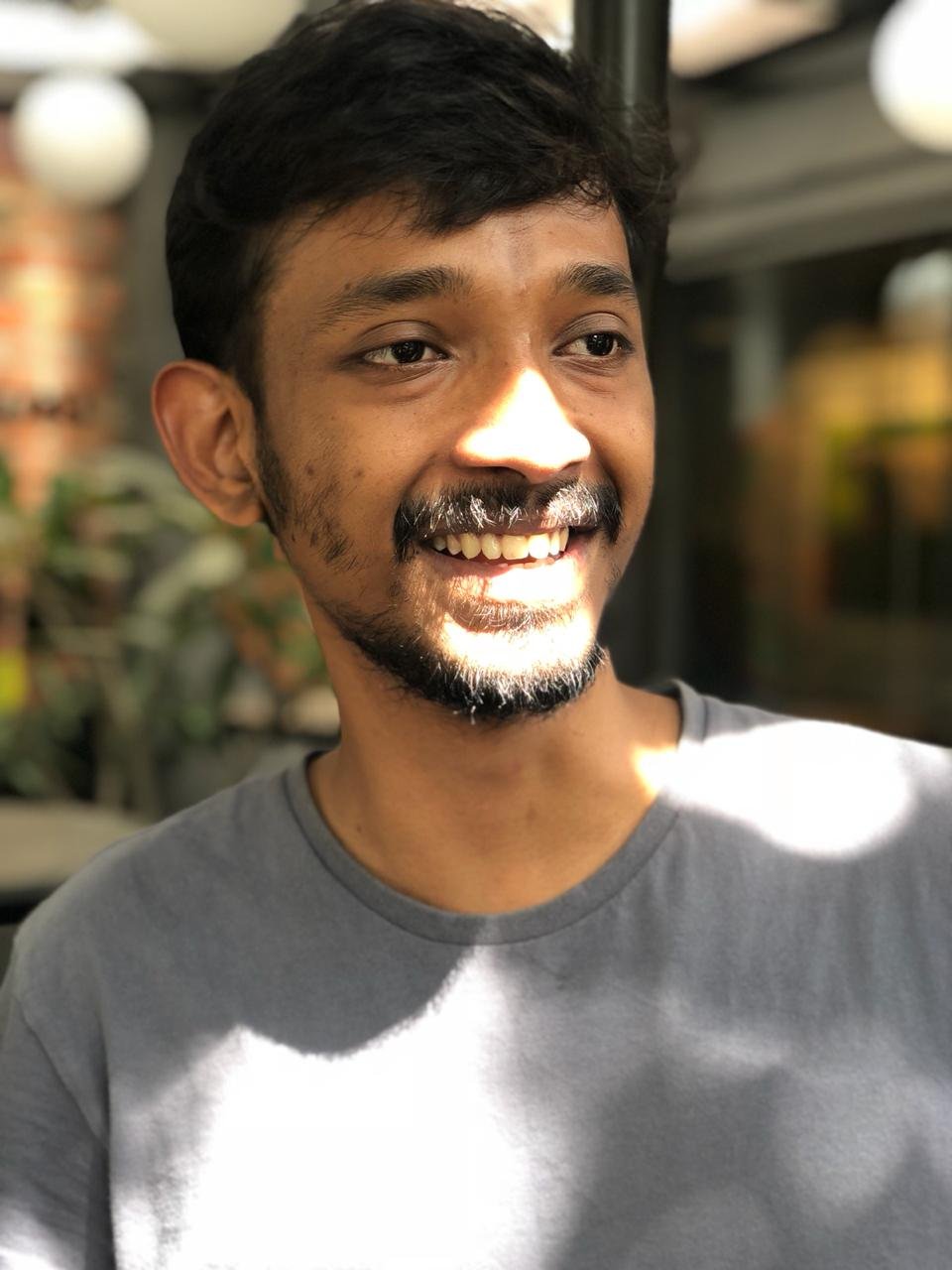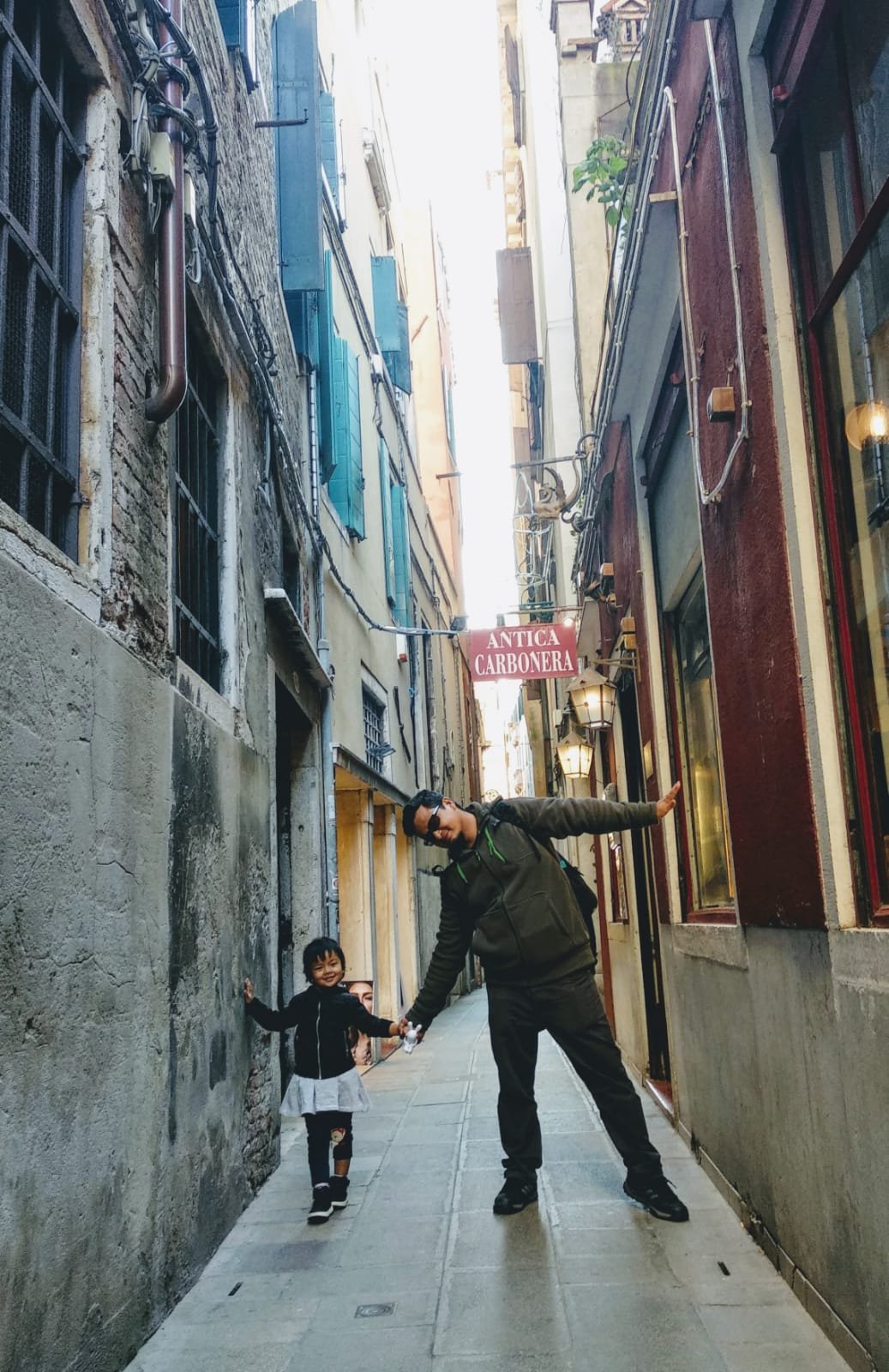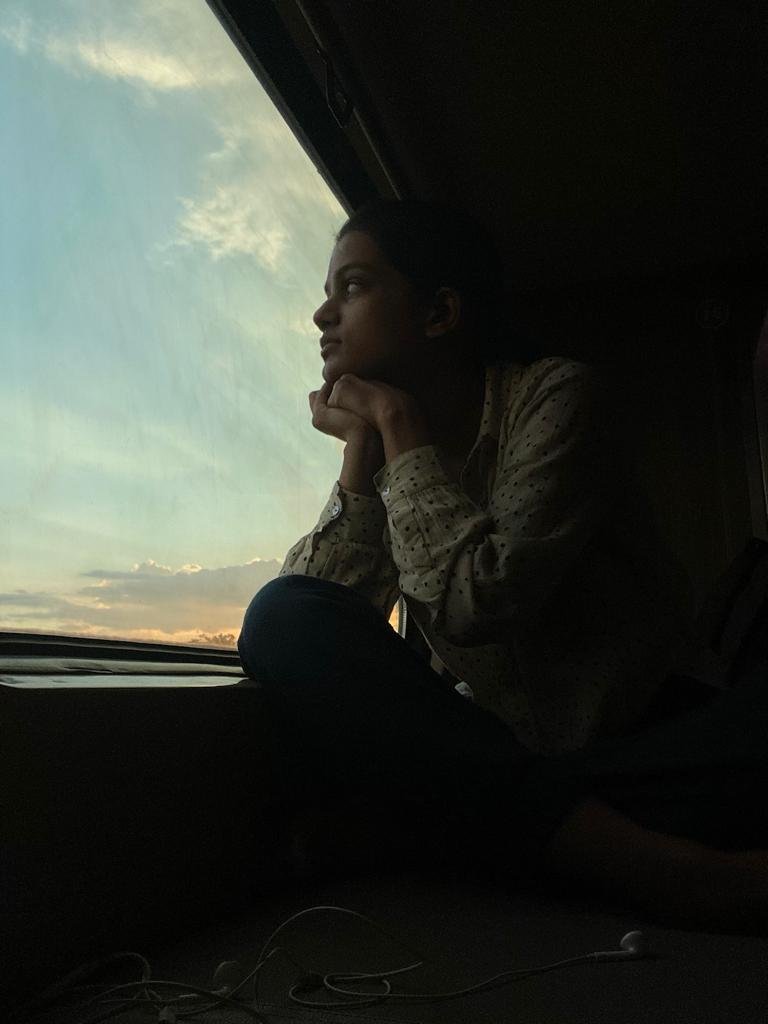The lives of strangers
YT videos have nearly 400 million viewers per day in India. Research shows that many of these viewers tend to watch vlogs of ordinary people engaging in mundane, everyday activities like cleaning, cooking, shopping and playing with their children.
What is it that makes these vlogs so fascinating? And why are we drawn to the lives of strangers?
Gowri Kishore spoke to five vlog enthusiasts to find out.
Illustration by Snigdha Rao
I’ve just stepped into my aunt’s slightly smoky kitchen on a Sunday afternoon. The fragrance of coconut oil fills the room. I peep over her shoulder. She is stirring tiny, perfectly chopped pieces of yam in a double-eared stainless steel kadai.
“Oh, nice,” I remark, “You have the Bergner triply kadai! Chitra Murali also has this.”
My aunt looks mystified. “Which Chitra Murali?” And suddenly, I am embarrassed.
I don’t want to admit that Chitra Murali is a Youtuber whose vlogs I’ve been watching religiously since the pandemic began. She isn’t the only one. I watch a Kannada mom vlogger whose son has just been diagnosed with autism. I watch two Chennai-based twins who cook and clean and shop as if their lives depended on it. I watch a Malayali vlogger go on long walks and have philosophical chats with her bookish husband. Their everyday lives are as real and familiar to me as my own. I certainly know more about them than I do about my own extended family.
Which is probably why I felt agitated when I came across a Twitter thread that was pretty dismissive of vlog watchers.
“Unsatisfied with their lives so they try to find joy watching others…”
“It is ridiculous how many people watch this shit with their family.”
“These are the same kind of people who watch mindless saas bahu serials…”
“Not only is a whole generation wasting their time, they’re also taking these vloggers… as their role models…and making more such useless videos.”
There were more derisive tweets along the same lines — bored people, jobless, timepass… I didn’t think I fit into any of these categories. Why then was I fascinated with the morning and evening routines of total strangers? Were there others like me?
So I decided to ask. And the stories came tumbling out.
“The beautiful-ness of ordinary life.”
Anzal, 29M, Software Engineer
“Have you noticed how news, entertainment, even movie trailers, cover only the high points of life?” asks Anzal. “Everything is extra: action, excitement, drama, controversy. I watch vlogs to get away from all this. To appreciate the boring beautiful-ness of ordinary life.”
At the end of a long day of work and meetings, Anzal doesn’t want to watch more content that is informative or “purposeful” in any way. So he and his wife turn to vlogs in which people do simple things slowly and deliberately. Like a woman packing a bento box for her husband. Or an old man waking up and heading outdoors to forage, pushing a wheelbarrow. Sometimes, there’s soothing music in the background. Often, it’s silence punctuated by the sounds of the day and space around the vlogger.
“I think vlogs are closer to reality than most content created for an audience. They’re not edited or cleaned up. They show a slice of life as it is and that makes me feel connected.” Anzal says. Does he care if people judge him for “wasting” time on vlogs? Not at all, he shrugs, “I clearly see the value in what I watch.”
“I don’t always want the full details, I just want to know what’s happening.”
Farah, 35F, Civil Servant
“Bombay commutes can be long and tedious,” Farah begins. “It was the pandemic, my baby was not yet born, and my husband worked in a different city. Mornings, evenings, nights… I had time on my hands. One day, I opened Youtube and it recommended Ahaana Krishna’s vlogs. I started there.” The more she watched, the more vlogs the algorithm brought up.
Today, Farah follows a number of Malayali vloggers regularly: Oru Happy Family, Sowbhagya Venkitesh, Anupama… “I don’t think I waste time on them,” she clarifies. She turns to them mostly during her commute to work or to unwind for ten or fifteen minutes before bedtime.
Often, she watches the videos at 2x speed. “I don’t always want the full details, I just want to know what’s happening. Sometimes I don’t even click on the video — I watch it on mute on my Youtube feed.”
Having lived in Bombay for nearly eight years, Farah says watching Malayali vloggers share their lives makes her feel connected to her naadu. She’s got some good local recommendations from these vlogs: eateries, shopping options, places to visit. She makes a note of them for when she travels next. She’s also tried out some recipes from the vlogs (“Biryani once and then I tried baking cakes, but I don’t think they were a super hit!”) and discovered new songs to listen to. One she remembers particularly is the haunting Bawra Mann cover by Darshana Rajendran.
Farah freely discusses what she’s watched with her mother and friends who have similar interests. “I don’t watch vlogs because I am bored,” she tells me firmly, “I watch them because it’s good entertainment.”
“I admire Youtube creators.”
Bhupesh, 39M, Executive at Supr Daily
“During the pandemic, we were spending a lot of time at home and became interested in home organizing. Searching for tips on Youtube brought us to vlogs. Now it’s become something my wife, 7 year-old daughter, and I enjoy together,” Bhupesh tells me.
The family generally does not watch TV and finds even half an hour on Netflix a “waste of time”. Instead, they watch vlogs for a quarter of an hour or so, especially on the weekends. Bhupesh has a number of Youtube vloggers in his own extended family, both youngsters and those 40+. They began vlogging before the pandemic but became regular during 2020/21. He says, “I have the utmost respect for Youtube creators and certainly support those from my family. I come from a small town in Kumaon called Haldwani and a popular Youtuber called Sourav Joshi is also from there. Imagine a guy sitting in such a small town making it so big on Youtube! It’s great to see.” Sourav Joshi has 17M subscribers, which is big by any standard.
Bhupesh is also interested in the craft behind the creation of vlogs. “I like looking at the visuals and trying to figure out how they would have planned and captured certain shots.” The type of videos he and his wife enjoy appear very natural with “no jazz, aftereffects, or drama.” So long as the sounds are soothing and there’s good editing and sequencing, they enjoy them.
His daughter loves Korean creator Hamimommy’s vlogs, which artfully capture and layer trigger sounds — a window shade sliding up, water trickling, a knife rhythmically slicing apples, the wind rushing through leaves, meat crackling on a stovetop — to create a simultaneously soothing and rousing “brain tingling” or ASMR (Autonomous Sensory Meridian Response). ASMR videos are among Youtube’s most watched categories globally.
“I am very conscious of my digital footprint,” Bhupesh tells me, “That’s the only reason I have never subscribed to any channel or left a comment. But I think what vloggers do is just amazing.”
“People are interested in people.”
Mini, 29F, Creative Director
“It started during the pandemic,” Mini explains, “I wasn’t really meeting a lot of people and I wanted to see what others were doing, how they were managing.” So she turned to vlogs. At first, this gave her comfort and reassurance — that life was going on all around. But slowly, that gave way to curiosity.
“I became interested in other cultures.” she says. “Morning or evening routines can look very similar yet very different in different countries. In one video, I was surprised to see that dinnertime for them was 7pm! I enjoy spotting curious facts like these.”
Has watching vlogs changed her life or habits in any way? Yes, Mini says, she’s picked up microhabits like bullet journaling from watching vlogs. She’s also found inspiring perspectives.
“I am a nervous person who always feels like something is about to go wrong. But watching vloggers who are happy and easygoing no matter what happens, has shown me a different way to live.”
That said, Mini admits fatigue creeps in after a while. From watching new videos daily, she now turns to them perhaps thrice a week. “In general, I believe people are interested in people, be it online or in real life. And the internet makes it easy to catch glimpses of their lives that are hard to see otherwise.”
“I don’t know. Maybe I was lonely.”
Sakshi, 22F, Artist at heart.
“A few years ago, I moved out of my parents’ house and with a roommate. But we weren’t really friends. We led separate lives.” Sakshi begins. “Maybe I was lonely, but I spent a lot of time on my phone and got hooked to Youtube. One of the first vlogs I found was a lady documenting the reality of pregnancy and I thought, wow — nobody talks about these things…”
She found some of the content very relatable too. Seeing strangers eat with their hands or sit on the floor for meals gave her a sense of connection. A feeling of “Oh, they are just like us”. She would also read the comments on the vlogs to understand how others thought.
Eventually though, Sakshi started to feel she was spending too much time on her screen. “Watching these gave me temporary pleasure but once a vlog ended, I would feel, “Abhi kya karoon?” Then I’d think “Ye hi kar leti hoon” and on it went.
When she started her first job, she actively tried to cut back by keeping her phone away on weekends. Slowly she took back control and now, her vlog-watching is just a couple of times a week, just to see what’s new. Sakshi describes vlogs as a guilty pleasure but also confesses to wanting to be a Youtube creator someday.
“I am inspired by these folks and want to be one of them. But as a Youtuber, I will have to share my life with my audience. I need to find the sweet spot of how much I can without upsetting my family and friends.”
Gowri N Kishore is a freelance writer from Bangalore. Her works have been published in HuffPost India, Film Companion, Bengaluru Review, Gulmohur Quarterly, Kitaab, and Second Chance Lit among others. She is usually found indoors with her dogs or outdoors with a book.






